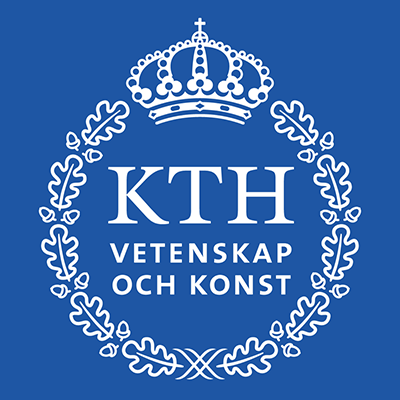Thanks, TorTalk. Of course, my kids are neither lazy nor stupid.
Every week we talk to people who use TorTalk text-to-speech to better cope with studies and careers, some of which you can read about under the tab Happy users. Our founder Tor Ghai has dyslexia and his life changed dramatically when he started using text-to-speech. All of a sudden, he could read all texts faster and without getting tired. We are happy to be a part of parents, teachers and schools’ efforts in helping children to develop. For children with dyslexia, text-to-speech is a very important piece of the puzzle to reach their full potential, maintain their self-esteem and actually nurture the gift we consider dyslexia to be. With the right reading tool (text-to-speech program) the capacity to read will improve faster than you think.

80% of Universities in Sweden are using TorTalk
What is dyslexia?
- Dyslexia is a learning disability in reading. People with dyslexia have trouble reading at a good pace and without mistakes. They may also have a hard time with reading comprehension, spelling, and writing.
- Dyslexia is a learning disorder that involves difficulty reading due to problems identifying speech sounds and learning how they relate to letters and words (decoding). Also called reading disability, dyslexia affects areas of the brain that process language.

Who can diagnose “Dyslexia” ?
- Difficulty in reading, writing and spelling.
- Problems with memory, focus and organising your workload (children may have concentration problems, or difficulty in remembering sequences such as days of the week, or the alphabet).
- Creativity and an ability to overview and connect things that are not obviously connected. To have an ability to see things from new angles and find unconventional solutions more often than average.
- Problems with understanding instructions or following directions.
- Difficulty with gross and fine motor skills (for example, catching a ball or holding a pencil; for children getting dressed, or tying shoelaces).
- “Mismatch” between expected and actual outcomes. Everything seems to be in place, but for some reason, the performance does not quite live up to expectations.
- Dyslexia often runs in families, so think if you have a history of poor readers, spellers or writers in the family.
Magnus Olsson's story
The father of two daughters

I have two daughters, the eldest was diagnosed as a dyslexic when she was 9 years old. Recently we discovered that also my youngest has reading difficulties.
As a father, I early sensed my girls didn´t like reading and that spelling and studying were challenging for them. I went online to search for digital tools to help my daughters. My eldest started using a computer when she was nine years old. I am very open with her reading disability and have always cooperated with the school. We have got a lot of help from the teachers. My daughters get to meet a speech therapist twice a week, and they don’t really have any problem catching up with the school study tempo.
From my point of view, my daughters don’t have any problem at all studying. The digital software of today is so helpful. One example is the TorTalk OCR function; when my daughter was young, she learned to use a touch screen to drag the OCR box over the text that she wanted to read. She is good at using the internet to search for information, finding the right videos and utilizing spelling checking tools to learn more. I would say she is independent and she is a role model for her younger sister. Both my daughters know how to learn, and they don’t feel they have problems. It is like everyone has different ways of learning quickly.
If I would have any suggestions for other parents, who have kids with dyslexia? The top one would be to encourage them to adopt digital tools like TorTalk (text to speech) as early as they can. Parents also need to open up and co-work with the school. The last very important one is to always encourage your kids to read more. For example: after they finish a book, I have always given them some rewards. This is the best way not to let them be afraid of reading.
MariAnne Cederholm's story
A mother of two kids with dyslexia. Now a teacher for grades 7-9, teaching English and Swedish as a second language.

Hi!
I am a mother of three, two of which have dyslexia. Both found out about their dyslexia when they were studying at the university. It took my son almost 10 years to finish his university studies and thesis, largely because he didn’t know that he had reading difficulties and didn’t know about the tools and support that he needed and which were available to him. I didn’t know much about dyslexia when the kids were small; at that time society as a whole lacked knowledge about it. When they were kids, they had spelling problems and disliked reading. I just attributed this to us living abroad, with two mother tongues – Swedish and English.
Back home in Sweden, my son had a friend at university who told me about his dyslexia. When the friend shared his challenges, they just resonated with my son, that he went and checked himself. As soon as my daughter heard that, she also checked with a speech therapist, and they both had dyslexia. I was as proud of my children with dyslexia as I was of my child without. But it felt a little awkward that I didn’t understand their struggles during school. As I myself love books, I continued to teach the children literature, but only one of the three appreciated it. One fine day, my daughter kindly asked me not to get any more books for her 😊.
In retrospect, I wish I had continued reading aloud to my children longer and not prioritized so many other things, like cleaning 😊. However, I remember being very impressed with my daughter’s writing capacity. Her spelling was very imaginative, but I still think that people with dyslexia spell better than others; as the words sound. When she writes today, however, you hardly notice any typos, thanks to programs like TorTalk and Word.
I think self-confidence is the hardest part of having dyslexia as well as the challenge to follow the school’s curriculum. The annoying truth is that both my mother and I misjudged people by their spelling before we knew more about dyslexia. Now that I understand that you can’t afford this and that there are tools that correct the spelling, I instead want to encourage you to make use of tools such as TorTalk. In my daily work at the school, I also want to encourage us, teachers, myself included, to gain more insight into how to help students with dyslexia and see signs of it. For example, it is not always just the reading and/or spelling that can be a challenge, you may also need support with planning and perhaps breaking down big goals into smaller ones.
As a parent of a child with dyslexia, I want to share some advice. Have a dyslexia investigation done as soon as you see signs of dyslexia! Read about the symptoms on 1177 and TorTalk’s website. Then make sure your child gets tools that suit them! Teach yourself the tools, and practice with your child until the tool is part of everyday life and nothing strange. Take time with your child, love, encourage and affirm their abilities! For example, I have seen creativity and problem-solving skills, in my children having dyslexia. Remember that your children are unique and amazing! Don’t let the challenge of dyslexia get the last word, it is only a small part of your child. As for books, read to them, laugh, maybe cry; appreciate books together. If you yourself have dyslexia, listen to books together, and read with your ears!
Good Luck and all the best,
MariAnne
Get TorTalk

- No binding.
- Free trial.
- 25 natural voices in 10 languages.
- Reads webpages.
- Reads text from pictures.
- Reads from PDF files.

- No binding.
- One-month trial at SEK 9.
- 60 natural voices in 20 languages.
- Reads webpages.
- Reads all PDF files, e-books and pictures with text. (OCR for all text formats).
- Up to three computers.

- Price depends on size of the organisation.
- Training and technical support for the organisation.
- 60 natural voices in 20 languages.
- Reads webpages.
- Reads all PDF files, e-books and pictures with text. (OCR for all text formats).









